Question And Answer
Publications
Articles, publications, books, tools and multimedia features from the U.S. Institute of Peace provide the latest news, analysis, research findings, practitioner guides and reports, all related to the conflict zones and issues that are at the center of the Institute’s work to prevent and reduce violent conflict.

Corruption Poses Unparalleled Threat, U.S. Official Says
Corruption is an unparalleled threat to democracy and prosperity that costs the global economy as much as $2 trillion a year, and it will require the approach of a marathon rather than a sprint to eradicate the scourge, according to William Brownfield, the U.S. assistant secretary of state for international narcotics and law enforcement. Victories like the current transformation of Ukrainian traffic police from reviled bribe takers to respected public servants give citizens the kind of hope n...
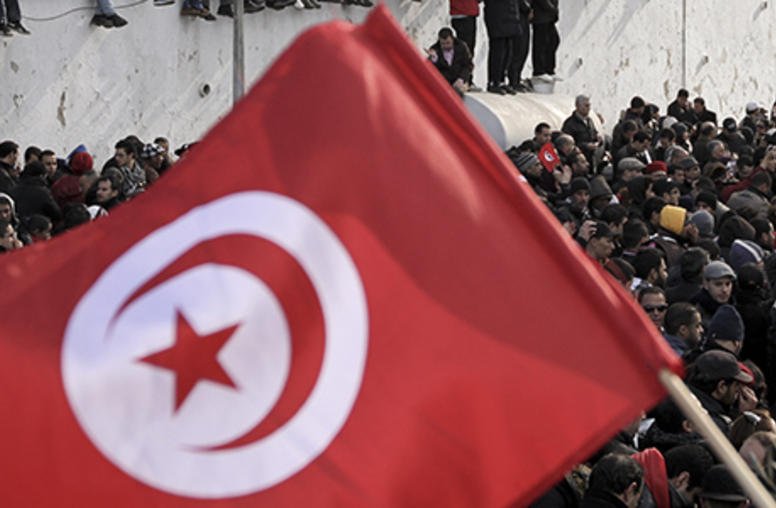
Tunisia’s Revolution: Five Years On, What Lies Ahead
In the wake of the 2011 Arab Spring uprisings, Tunisia stands alone. As other countries in the upheaval have splintered into civil war or returned to dictatorship, Tunisia’s Jasmine Revolution, on its fifth anniversary, remains on a peaceful, democratic path with an elected parliament and coalition government bound by a constitution. At the same time, the specter of a weakening economy, rising violent extremism and an increasingly disillusioned public tugs at the future.
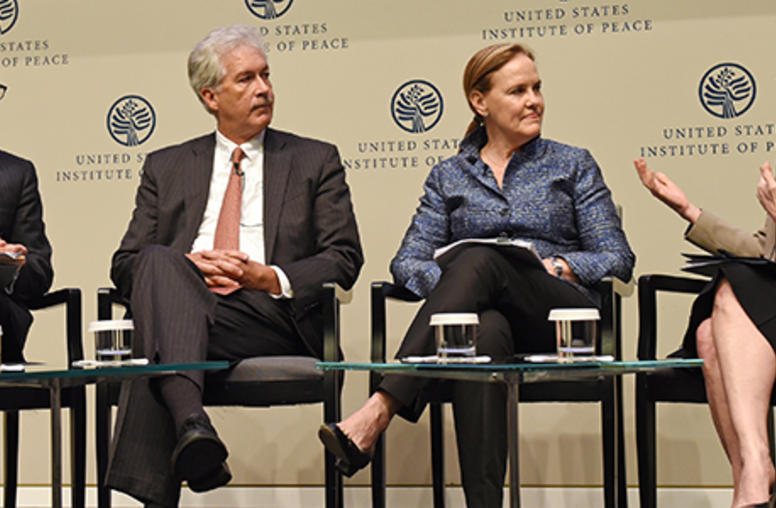
Burns, Flournoy, Lindborg Press Urgency of Fragile States
Three former high-ranking officials in the State Department, the Pentagon and the U.S. Agency for International Development (USAID) urged the next presidential administration to commit more attention and resources to preventing the kinds of violent conflicts that are roiling the Middle East and other regions today and spilling over into neighboring countries, Europe and the United States. Former Deputy Secretary of State Bill Burns, Under Secretary of Defense Michele Flournoy and USAID Assist...
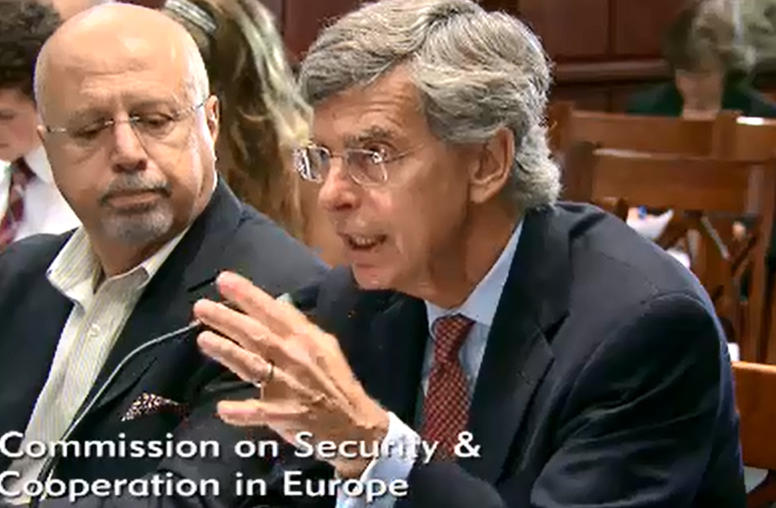
Political Pluralism in the OSCE Mediterranean Partners
William B. Taylor, vice president for Middle East and Africa, testifies before the United States Helsinki Commission on OSCE Mediterranean Partners.
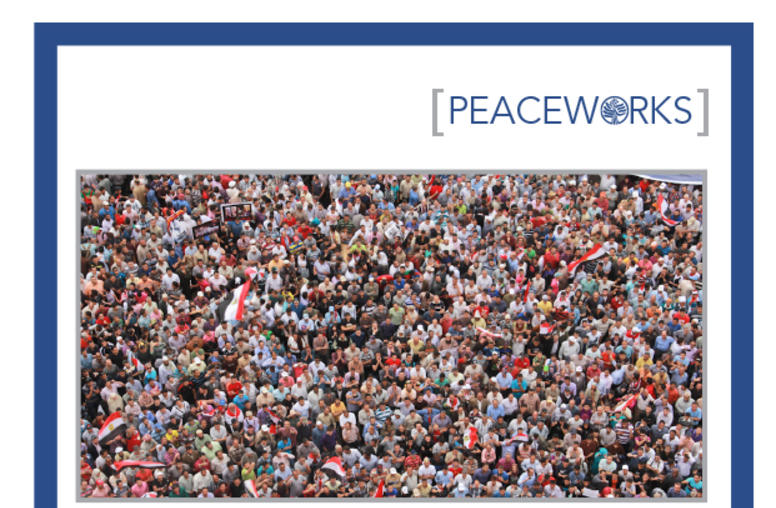
Participatory and Inclusive Constitution-Making
In the wake of the Arab Spring, citizens across the Middle East and North Africa are demanding reforms from their governments. How these governments respond to their people and promote inclusive constitution-making processes may determine whether their new social compacts lead to a durable peace. This report draws from the work of scholars and constitution makers who have been exchanging ideas about how to ensure that modern constitutions incorporate the needs and aspirations of the citizens ...
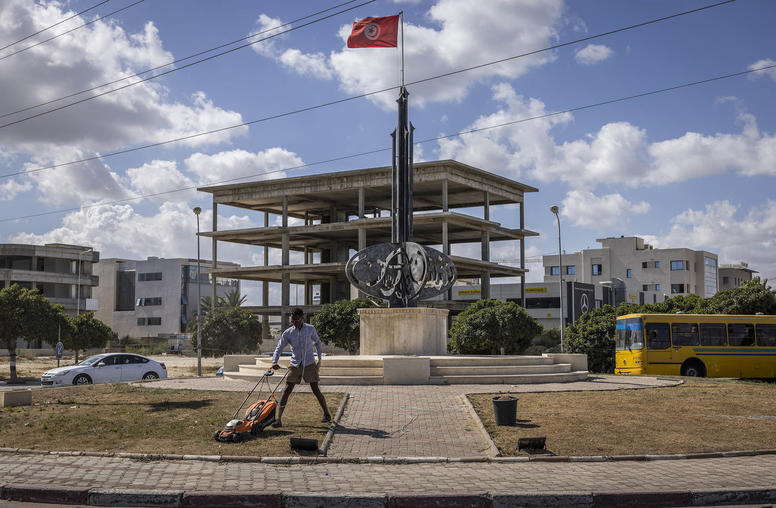
Tunisia's Twin Democracy and Economic Crises Push it to the Brink
Last July, Tunisian President Kais Saied suspended parliament in what many observers called a bloodless coup. Saied’s supporters — of which there are many — claim that this extreme executive action was necessary to root out rampant government corruption and ineffectiveness. Polling at the time showed widespread dissatisfaction with the performance of parliament and the prime minister; many Tunisians felt that their high expectations following the 2011 popular revolution were not realized and that the country was heading in the wrong direction.
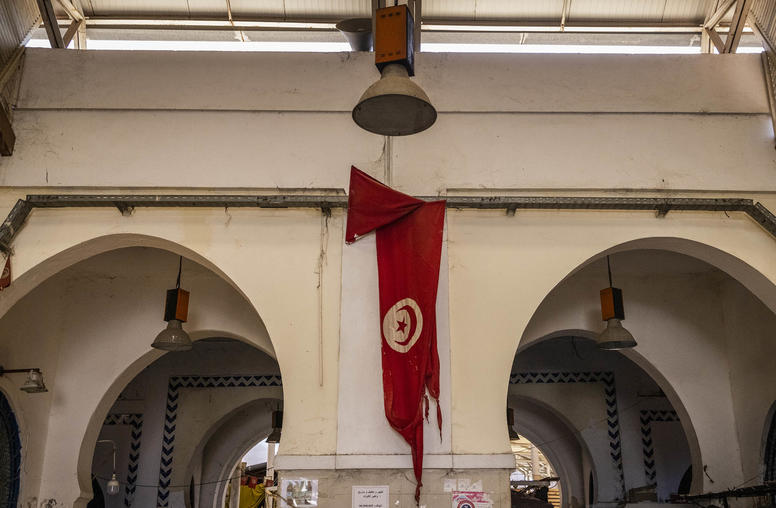
Tunisia’s new constitution expands presidential power. What’s next for its democracy?
A year after Tunisian President Kais Saied began a series of moves that expanded presidential powers, a new constitution further empowering the presidency has been approved by referendum. Amid a dire economic crisis, many Tunisians expressed support for Saied’s moves, as the promise of the 2011 uprising evaporated over the last decade. While the referendum passed with 94 percent of the vote, only 30 percent of Tunisians participated. Once heralded as the sole democratic success of the Arab uprisings, Tunisia’s democratic future trajectory is more uncertain than ever following the constitutional referendum.
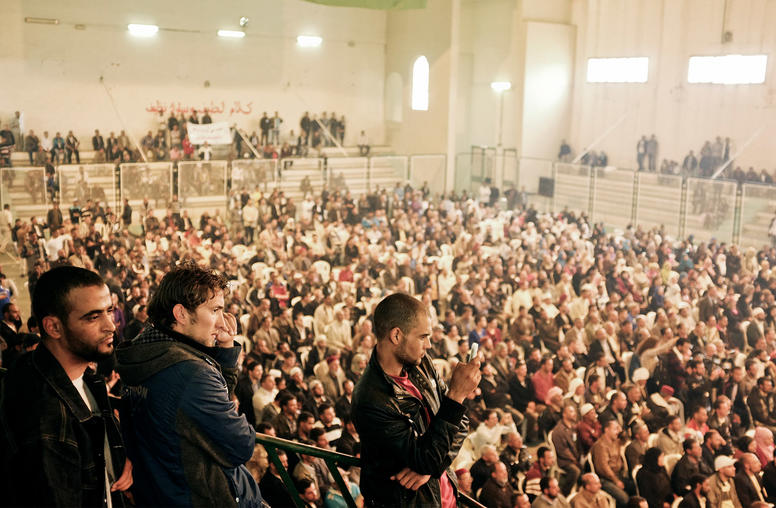
Tunisia’s Transition Hits a Rough Patch Following COVID Lockdown
Since uprisings swept the Middle East and North Africa in 2011, Tunisia has long been regarded as the lone democratic success story. But nearly 10 years later, volatile party politics and authoritarian legacies continue to plague the transition. The October 2019 election cycle, marked by low voter turnout, demonstrated Tunisians deep disenchantment with the political class for its failure to address the grievances that sparked the ouster of longtime dictator Zine El Abidine Ben Ali. After the elections, a government was not formed until February 2020. But months later, Prime Minister Elyes Fakhfakh resigned over allegations of conflicts of interest. In recent weeks, the political landscape has shifted rapidly. USIP’s Leo Siebert examines the political wrangling and Tunisia’s post-election political struggles.
Egypt, Tunisia, and the Constitutional Movement
Egyptians and Tunisians are anxiously waiting to see how their aspirations will be realized in the weeks after the historic popular uprisings. While no component of Egyptian or Tunisian society – governance, politics, security, civil society, and economy -- is likely to be spared scrutiny, special attention will necessarily be paid to the constitution.
Progress and Stability in the Middle East
USIP’s Steven Heydemann, vice president of the Grants and Fellowships program and special adviser to the Muslim World Initiative, describes the progress and challenges facing Egypt and Tunisia and how the U.S. can assist in stablizing the region.